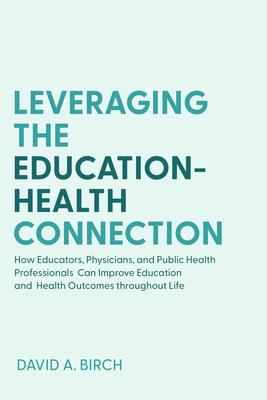On the interdependent relationship between health and academic achievement.
Research indicates that healthy children are more likely to succeed in school and that individuals who attain higher levels of education are more likely to experience better health outcomes in adulthood. To promote and support children's academic success, educators must view student health as an education issue. At the same time, public health professionals must view students' academic success as a public health issue. In Leveraging the Education-Health Connection, David A. Birch explores this interdependent relationship and lays out strategies to improve outcomes for both education and health.
Birch provides evidence and recommendations on
- the links between student health and academic success and between education attainment and adult health outcomes;
- the impacts of social injustice and early childhood experiences on health and education;
- strategies for minimizing absenteeism, promoting students' and their parents' connection to the schools, and increasing graduation rates;
- the Whole School, Whole Community, Whole Child model that provides a framework for health-promoting schools;
- the collaborative role of educators, physicians, and public health professionals in advocacy for schools that promote meaningful learning and student well-being; and
- actions for establishing local coalitions that promote education and health and address social injustices.
Schools can act as partners with public health organizations to support initiatives that have a clear and direct bearing on educational outcomes, such as quality health education and physical education, nutrition education and services, mental and emotional health services, family and community engagement, faculty and staff health promotion, and a healthy and safe school environment. This guide is an important resource for everyone working at the intersection of public health and education.
